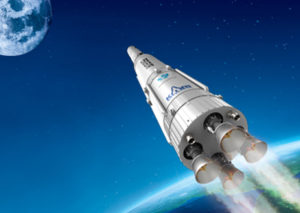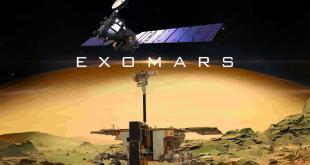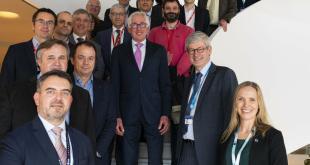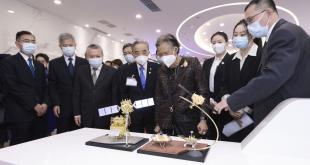
The French national space agency, the Centre national d’études spatiales (CNES), and the Korean Aerospace Research Institute (KARI), met earlier in July 2018 to discuss working together within the framework of the Space Climate Observatory (SCO) and bilateral space cooperation in space launch and the development of Korean positioning, navigation, and timing (PNT) satellites.
The talks took place in Seoul, South Korea, with the visit of the president of CNES, Jean-Yves Le Gall, to KARI and the Korea Meteorological Administration (KMA). Le Gall spoke with his counterparts – Lim Cheol-Ho of KARI and Nam Jae-Cheol of KMA – about the current status of the SCO that was announced in Paris at the One Planet Summit held in December 2017. Led by CNES, SCO is intended to be an international partnership of space agencies and other organisations that will share data, pool resources, and cooperate to develop the initiative to measure and better understand climate change and its impact around the world, and provide decision support to help mitigate it.
The Franco-Korean meeting was the second this year, following the second France-Korea Space Forum held in Paris on 3 April 2018. As well as briefing his Korean counterparts about the status of the SCO initiative, Le Gall and his colleagues also discussed the space agenda for the upcoming state visit to France by South Korean President Moon Jae-In in October 2018.
France and South Korea have been cooperating in space for over thirty years, with the French government and companies supporting Korea in the development of its space programme through the manufacturing of satellites, the design of scientific instruments and other components, and by providing launch services over the years. Since the start of the 21st century, France has also assisted South Korea in the development of its Earth observation satellites and in the design and management of its launch facilities. Cooperation was deepened in 2015 with the signing of an interagency agreement that includes French assistance in the development of the ground infrastructure for the Korean Space Launch Vehicle-II (KSLV-II) and for the Korea Augmentation Satellite System (KASS) PNT satellite system currently under construction by KARI, with French satellite manufacturer Thales Alenia Space as the prime contractor.
Speaking after his meetings in Seoul, Jean-Yves Le Gall said, “Since my first visit to South Korea for the first France-Korea space days in 1987, it’s always been a huge pleasure to come back to this country. Today, the decision by KARI and the KMA to work with CNES to deliver the SCO reflects Korea’s resolute commitment to fight climate change. It’s a new milestone in the cooperation between our two countries in space, and I look forward to taking it a step further during President Moon’s visit to France in October.”





